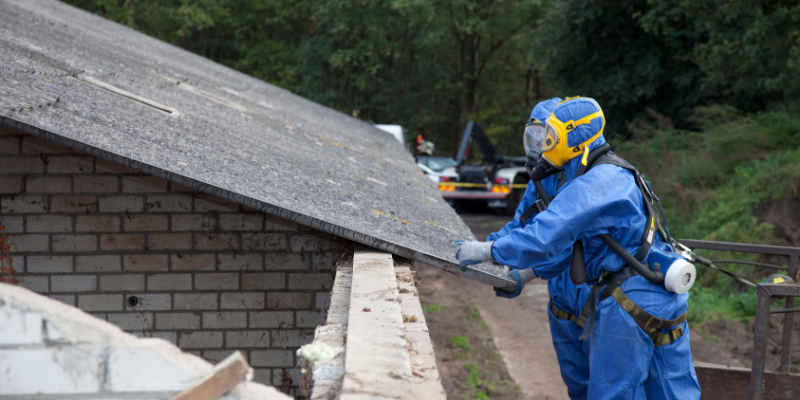
Understanding Asbestos: Health Risks and Legal Implications
Understanding asbestos is critical for Seattle residents trying to sell their property, especially given the health hazards and legal ramifications. Asbestos, formerly renowned for its toughness and heat resistance, is now acknowledged to offer serious health risks.
Prolonged exposure can result in serious illnesses such as mesothelioma, lung cancer, and asbestosis. Asbestos poses significant health dangers, making it a crucial consideration for real estate purchases.
In Seattle, sellers are required to follow strict asbestos disclosure guidelines. Failure to fully report the presence of asbestos can result in legal penalties, such as fines or litigation from buyers who believe they were deceived about the property’s condition.
To avoid these issues, homeowners should conduct proper inspections and, when necessary, consult professionals to test for asbestos before listing their property. For those who want to sell their Seattle house fast without dealing with the hassle of repairs and inspections, companies like Sell My House Fast For Cash offer an easier route. They buy homes as-is—even those with environmental hazards like asbestos—and provide quick closings, helping homeowners move forward confidently.
Historical Use of Asbestos in Construction: What Homeowners Should Know
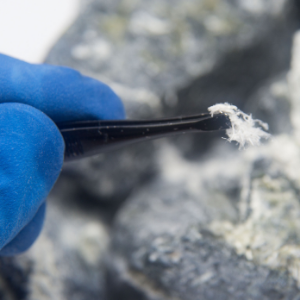
Asbestos was widely used in building throughout the twentieth century, and many Seattle homes constructed before the 1980s may contain this toxic material. The material, known for its toughness and fire resistance, was used as insulation, roofing, siding, floor tiles, and even textured paint.
Homeowners in Seattle should know that, while asbestos is usually safe if not disturbed, remodeling or demolition work might release dangerous fibers into the air. Understanding the past use of asbestos is critical for sellers preparing their houses for sale.
They should be prepared to address any buyer concerns and comply with local asbestos disclosure and management standards. Knowing where asbestos may be found in a home can help sellers take appropriate action, such as engaging qualified professionals for inspection, testing, and abatement if necessary.
This knowledge ensures that safety regulations are met and the property’s value is maintained during the sale.
Real Estate Disclosure Laws for Asbestos in Seattle, WA
When selling a home in Seattle, Washington, sellers must understand the real estate disclosure rules governing asbestos. Sellers in Seattle and throughout Washington State are legally obligated to declare any known presence of asbestos in their property via the Seller Disclosure Statement, often known as Form 17.
This obligatory document contains specific questions regarding hazardous products, including asbestos, and dealers must respond accurately to avoid legal ramifications. If sellers suspect asbestos-containing materials on their property, they must conduct a comprehensive inspection.
Asbestos was widely utilized in building materials before rules were imposed to address its health dangers; therefore, older homes are especially vulnerable. Failure to disclose known asbestos can result in significant penalties and erode buyer confidence during negotiations.
If you’re in a hurry or unsure how to navigate these legal requirements, Sell My House Fast For Cash provides a valuable option. Our team is experienced with the nuances of Seattle’s real estate laws and can help you sell your Everett house fast; no cleanup or repairs are needed.
Pre-sale Inspections and Testing for Hazardous Materials
Pre-sale inspections and testing for hazardous materials are critical when selling a Seattle house that may contain asbestos. Sellers should prioritize engaging trained professionals to undertake thorough examinations to detect the presence of asbestos or other dangerous substances on their property.
This proactive strategy assures compliance with Washington state standards and increases buyer confidence by displaying transparency and accountability. Comprehensive inspections can disclose potential flaws, allowing sellers to rectify them before advertising their home.
Testing for hazardous materials yields detailed reports outlining the location, condition, and risk level connected with asbestos-containing products. By using these procedures, sellers can better position their houses in a competitive Seattle real estate market while reducing future liability associated with unreported dangers.
Steps to Safely Remove Asbestos From Your Home
When preparing to sell a Seattle property containing asbestos, it is critical to remove the hazardous material carefully for health and legal reasons. Start by engaging a qualified asbestos inspector to inspect areas with asbestos, such as insulation, flooring, or roofing materials.
If asbestos is confirmed, use a licensed abatement specialist who adheres to federal and Washington state rules for safe removal and disposal. The abatement team will likely employ specialized equipment to trap the asbestos fibers during removal, minimizing exposure risk.
It is critical to leave the premises at this period to avoid inhaling any airborne fibers that could cause significant health problems. After the abatement is completed, obtain a clearance examination from an independent party to ensure your home is asbestos-free.
Proper documentation of these activities assures compliance with local legislation and gives prospective purchasers peace of mind about environmental safety concerns in their new house. When selling your home FSBO, maintaining thorough records is especially important to build buyer confidence and demonstrate that all legal and safety requirements have been met without the assistance of a traditional real estate agent.
Cost Breakdown for Asbestos Removal in Washington State
Knowing the pricing breakdown for asbestos removal is crucial for sellers selling a home in Seattle. The pricing is determined by the location of the offending material, the work involved, and how easy it is to access the material.
Because of the tight regulations in Washington State that are designed to ensure safety and compliance, professionally trained contractors must be utilized for complete asbestos abatement.
In Washington State, smaller removals like those involving ducts and pipes are priced at $1,500 to $3,000 per unit. Because of this, working with more than one unit can quickly increase the total cost. Although these costs are far lower than larger removals that involve flooring or insulation, this still significantly increases the pricing.
Aside from the unit cost-based freestanding structural removals, several inspections and tests must be carried out after and before the removal to ensure no dangerous bits are left behind.
This budget allocation is especially critical for sellers wanting to make a home attractive while complying with buyer concerns.
How to Hire Certified Asbestos Abatement Professionals in Seattle
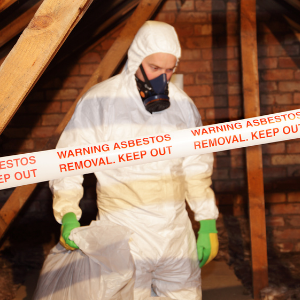
Following asbestos removal, the sellers of the Seattle house must hire a licensed asbestos abatement contractor. This is critical for compliance with the prevailing laws in the area. Start conducting searches for Seattle asbestos removal contractors, checking for the licenses and certifications with the Washington State Department of Labor and Industries.
Seek out personnel with vast experience dealing with residential asbestos abatement. They should know how to deal with older houses, so ask for referrals from past clients to evaluate their reliability and service quality.
You must issue multiple bids to check costs, but remember that the lowest price does not equal the best service. Correct containment procedures will need to be employed to avoid contamination during removal, and all EPA rules on the disposal of the asbestos must be followed.
Hiring certified contractors like the ones outlined above will help protect your investment and mitigate your risk to potential buyers.
Remediation vs Encapsulation: Select the Best Solution for Your Property
With Seattle homes, understanding the difference between cleanup and encapsulation is strongly advised. The distinction could save you thousands.
Remediation refers to thoroughly removing all asbestos materials from the property, erasing any remnants of danger, and reducing health risks for future occupants. While this method is often preferred for achieving long-term peace of mind, it tends to be costly and can take time.
Encapsulation focuses on sealing asbestos-containing objects with a barrier to prevent the escape of fibrous particles. While encapsulation is more affordable and quicker than complete repair, it requires ongoing maintenance checks to ensure the protective seal does not fail.
These two options differ primarily in cost, time needed, and the specific condition of the asbestos materials within a home.
Working with a specialized asbestos management professional can give you tailored advice that best suits your situation. These insights could ultimately provide a sound decision that meets your budgetary priorities and safety concerns for future purchasers.
Selling a Property with Asbestos: A Comprehensive Guide
When selling an asbestos-laden house in Seattle, one must know specific issues and legal requirements. Asbestos presents potential dangers when exposed from its hiding place, which is why it is generally found in older homes, and selling comes with disclosure obligations.
Sellers should examine all insulation, roofing, and flooring asbestos composites for possible inclusion. A certified inspector can accurately ascertain the presence and condition of asbestos.
For properties with hazardous items, it is advisable to consult with experienced real estate brokers to navigate the multifaceted sale process smoothly. Homes may need to be remediated or encapsulated before listing, but sellers must evaluate these strategies against ROI and overall market conditions.
Being familiar with state and federal laws regarding asbestos removal helps sellers manage liability risks and remain honest with potential buyers. Sellers can strengthen trust and improve the sale process by presenting complete documentation concerning asbestos-related work performed on the property.
The Impact of Asbestos on Property Value and Buyer Interest
Asbestos in a Seattle home can substantially influence property value and buyer interest, posing seller issues. Once widely used for insulation and fireproofing, asbestos is now known to pose health dangers, such as respiratory problems and cancer.
This has raised awareness among potential purchasers who are apprehensive of acquiring homes with asbestos-related risks. Asbestos can diminish a property’s marketability, forcing bidders to demand lower prices or require sellers to cover remediation costs before closing the transaction.
Lenders may hesitate to approve mortgages for properties with known asbestos hazards, complicating the sale process. As a result, sellers must proactively address these issues by conducting professional inspections and communicating openly about existing asbestos and cleanup efforts.
Understanding how asbestos impacts property value and taking actions to limit its effects allows sellers to negotiate the intricacies of selling a home in Seattle’s competitive real estate market.
Best Practices for Marketing a Home with Environmental Hazards
When promoting a Seattle house with environmental dangers such as asbestos, it is critical to follow best practices that effectively express transparency and value. To gain potential buyers’ trust, start by mentioning the presence of asbestos in all listings and advertising materials.
Highlight any previous expert assessments or repair attempts demonstrating responsibility and alleviating buyer concerns. Collaborate with real estate agents who have sold properties with environmental challenges; their knowledge can help you target the right audience and frame the tale positively.
Providing extensive information regarding local asbestos rules and resources for additional investigation or abatement can help alleviate worries and stimulate educated decision-making. Furthermore, it highlights other appealing aspects of the property and neighborhood, ensuring that potential purchasers see the big picture beyond the environmental problems.
Sellers may boost buyer confidence and make the sales process go more smoothly by implementing these methods, despite the hazards.
Legal Obligations When Listing a House with Known Hazards
When selling a house in Seattle with asbestos, it is critical to understand the legal requirements to maintain compliance and prevent liability. Sellers must declare the presence of asbestos in the property disclosure statement required by Washington State law.
Transparency about known concerns, such as asbestos, is critical for preserving buyer trust and adhering to real estate standards. Failure to divulge this information might result in legal consequences, such as litigation or financial penalties.
Before advertising the property, sellers should acquire an inspection report from a licensed asbestos professional. This report can chronicle the material’s condition and help determine whether abatement or remediation is required. Sellers should also be aware of federal Environmental Protection Agency (EPA) requirements regarding the handling and disclosure of asbestos during real estate transactions.
Consulting with a real estate attorney familiar with local Seattle ordinances and state laws can help sellers navigate these complex procedures more successfully while ensuring that all required disclosures are completed accurately and on time.
Engaging Effectively with Buyers Regarding Possible Health Concerns
Due to its potential health risks, it is imperative to effectively engage with buyers while selling a house in Seattle that contains asbestos. Communication with buyers has to be thorough. Sellers should acknowledge the presence of asbestos and explain its location on the property.
Buyers must understand the risks, such as respiratory illnesses resulting from asbestos fibers. Undisturbed asbestos is considered harmless, and emphasizing this fact can help build confidence in the seller. Providing buyers with copies of any clinic–level inspections or evaluations done by certified professionals can also be helpful.
Assurances of safety and adherence to local regulations concerning asbestos management or any remediation techniques done are essential for buyer confidence. Addressing buyer concerns indicates responsibility, which can expedite negotiations and result in a successful property sale.
Offers on Homes with Environmental Issues: Negotiation Strategies
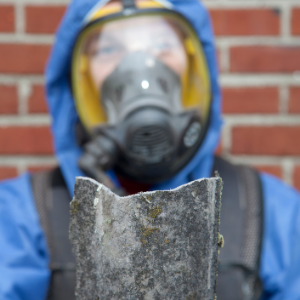
Sellers must be aware of and consider negotiating offers on homes in Seattle that contain asbestos. Environmental issues impact property value and buyer interest. It is equally important to know the real estate market in the region and understand how the presence of asbestos can affect negotiations.
Sellers are advised to obtain a professional asbestos inspection report before listing the property. An inspection report fosters trust and averts disagreements between buyers and sellers. Due to the presence of asbestos, it is also essential to be ready to provide concessions such as price reductions or aid with cost remediation.
Buyers could be assured if they are informed about any proactive measures made to manage or contain asbestos. They will be less concerned and more confident about the purchase. If a real estate agent does not specialize in selling homes containing environmental issues, no adequate counteroffers or sale conditions will be made, thus violating Washington state disclosure laws.
Insurance Considerations for Homes Containing Asbestos Materials
Selling a home in Seattle with asbestos becomes complicated by the insurance implications. Most homeowners’ insurance policies have provisions that deal with hazardous materials like asbestos, posing a risk to both coverage and liability.
Evaluating policies to see if there are any exclusions regarding asbestos or if additional endorsements are required is critical. Working with an insurance agent who specializes in houses ascribed to having asbestos could ease worry by making suggestions on essential coverage adjustments.
Sellers might need to declare the presence of asbestos during the entire sale, as failing to do so could create legal problems and affect pending claims. Ensuring that all cleanup activities on the property comply with local regulations is equally important, as mismanagement can nullify insurance claims and lead to significant financial damages.
Grasping how insurance claims work could assist sellers in navigating more straightforward dealings with asbestos-containing houses in the Seattle real estate market while avoiding potential problems.
Financing Options for Renovation and Sale of Older Homes
Considering financing options for upgrading an older Seattle property with asbestos is essential before listing it for sale. Sellers can consider remodeling loans such as FHA 203(k) and Fannie Mae’s HomeStyle remodeling loan, which cover necessary repairs, including asbestos removal.
Through these loans, homeowners can secure a single mortgage to finance the purchase and renovation, allowing budget control and ensuring the home meets safety standards. Sellers with sufficient property equity may also opt for personal loans or home equity lines of credit.
Local government policies and programs may assist with asbestos removal and energy-efficient renovation. Utilizing these options allows sellers to boost the value of their property while meeting health standards, thereby increasing the number of buyers in the competitive Seattle real estate market.
Long-term Ownership Strategies for Properties with Environmental Issues
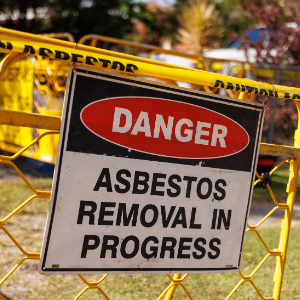
In the case of a Seattle home affected by asbestos, a seller may adopt long-term ownership strategies that enhance value and ensure environmental compliance. For sellers planning to remove asbestos, the first step is to assess the scope of the problem with thorough examinations, which will dictate the remediation strategy.
Familiarity with local regulations and compliance obligations is crucial, and disclosure rules are fundamental in Seattle, where properties with such hazardous items are heavily regulated. Regular maintenance programs mitigate asbestos exposure risks and safeguard the occupational environment.
Hiring licensed contractors for routine evaluation for possible asbestos removal helps build market confidence and lowers the property’s risk. Also, adding green features to restorations may make the property more attractive to environmentally conscious buyers, which can increase marketability.
If sellers take these steps, they can mitigate the risk of loss arising from the difficulties associated with selling a home that contains asbestos, all while safeguarding their investment for future resale value.
Do You Have to Disclose Asbestos When Selling a House in Washington State?
While selling a home in Seattle or anywhere in Washington State, sellers must disclose asbestos to potential buyers. Buyers Notice Something’s Wrong with the Property Value. Washington state law requires sellers to provide buyers with information that impacts the property’s value or desirability.
Although asbestos is now known to be a serious health hazard, the material was widely used in construction until the 1980s for its fire resistance and robustness. Comprehensive disclosure helps build trust with buyers and meets the legal requirements.
Failure to disclose asbestos would result in legal consequences and, in most cases, torpedo the sale. Sellers must proactively inspect asbestos to ensure accurate disclosures while avoiding legal headaches.
Information gaps exposed by failure to disclose facts lead sellers to lose negotiating power. Still, these gaps allow sellers to negotiate sale conditions easily when disclosing step-aside remedial works.
Can You Legally Sell a House with Asbestos?
Selling a house with asbestos is legal in Seattle, but there are specific considerations and laws a seller needs to follow. For homeowners trying to sell their homes, complying with all regulations concerning asbestos will determine how smoothly the sale goes.
Prospective buyers must be informed since asbestos is a sensitive real estate matter. A thorough inspection by a certified professional for proper verification is also recommended.
Although removing damaged asbestos is not legally necessary, it is strongly suggested if the seller wants to boost buyers’ confidence or increase value. As you comply with the regulations regarding unlawful asbestos management, ensure you are still conforming to federal, state, and local laws throughout the sale.
Hiring a real estate lawyer specializing in Washington laws ensures that all the necessary disclosures are made, documentation is completed, and liability is minimized. If you want to protect yourself and the buyer while successfully selling your Seattle home, striving to understand legal obligations quickly will make the process smoother.
Does Asbestos Lower Home Value?
Owning a home in Seattle with asbestos can severely diminish its value when trying to sell it. Seattle uses asbestos for construction since it was once a well-known building material due to its fire-resistant properties. However, we now know that it can cause severe health dangers, including cancer and respiratory problems.
In the Seattle real estate market, homes that contain asbestos are perceived to be lower in value due to the costs and issues connected with removal or encapsulation. Combined with Washington state law’s disclosure requirements, which force sellers to inform potential buyers about the asbestos, this can reduce the property value significantly.
Some savvy buyers will knowingly use the home’s asbestos to negotiate a much lower sale price than intended or demand that it be fixed before finalizing the agreement. Dealing with asbestos, therefore, can be done with professional inspection and abatement services, which will improve the chances of the home being sold at a fair price and with high marketability.
Is It a Bad Idea to Buy a House with Asbestos?
Houses in Seattle come with their own unique set of challenges as well as opportunities. This is especially true for homes with asbestos since it was used in construction materials until the 1980s when its health risks became public knowledge.
Asbestos in a home poses danger, so people working in that field must carefully analyze insulation, roofs, and siding in Seattle homes built before the 1980s.
Instead of viewing it as a negative, consider purchasing a home with asbestos a daunting yet interesting challenge. It would be helpful to contact a professional asbestos inspector to get their opinion on whether the material exists within the home and its condition.
Although asbestos may not pose an immediate threat if it is stable and undisturbed, a home’s value will lower significantly in the case of future renovations. The amount the seller discloses impacts negotiations and pricing because expenses directly abated are free post-purchase.
Lastly, buyers need to assess the value of Seattle’s housing market. This balanced approach enables buyers to perceive setbacks as strategic opportunities that transform them into wiser decisions when doing the necessary research.
Whether you’re facing costly asbestos remediation, tight deadlines, or simply want to avoid the hassle of traditional selling, Sell My House Fast For Cash offers a stress-free solution by buying homes in any condition—quickly, legally, and for a fair cash price. Contact us at (866) 824-3222 to get your offer today!
Helpful Seattle Blog Articles
- Cheapest Housing Markets Outside Seattle, WA
- List A House For Sale With A Lien In Seattle, WA
- Marketing And Selling Homes With Code Issues In Seattle, WA
- Quick Home Sales And Seamless Relocation In Seattle, WA
- Timing For Selling Your House In Seattle, WA
- Closing Costs Without a Realtor in Seattle, WA
- Expert Tips For Selling An Inherited House In Seattle, WA
- Navigating The Sale Of A Seattle Home With Asbestos
- Selling Your Seattle, WA Home With A Reverse Mortgage
- Selling Your Home FSBO In Seattle, WA
- Real Estate Taxes When Selling Your Home In Seattle, WA

| ASBESTOS REMOVAL | ASBESTOS REMEDIATION | HEALTHY LIVING | HEALTH PROBLEMS | DISEASES | CASH |
| REALTOR | CANCER OF THE LUNGS | SYMPTOMS | REGULATORY COMPLIANCE | CANCEROUS | LUNG FUNCTION |
| LUNGS | LUNG TISSUES | LABORATORY | HOME INSPECTORS | HOME INSPECTION | THE UNITED STATES |
| PLEURAL | LEGAL COUNSEL | FLOOR COVERING | CHRYSOTILE | WHITE ASBESTOS | SERPENTINE ASBESTOS |
| CHRYSOTILE ASBESTOS | CHEST | SMOKING | COUGH | COUGHING | |
| PERSISTENT COUGH | CEILINGS | CLEAN AIR | EMISSIONS | HAZARDOUS AIR POLLUTANTS | SOIL |
| SHORTNESS OF BREATH | PLEURAL PLAQUES | PLEURAL DISEASE | MINERALS | MEMBRANE | HOMELIGHT |
| HEATING | WALLBOARDS | DRYWALL | BREATH | BLOG | ATTIC |
| WALL | CIGARETTE SMOKING | CHEST CAVITY | STOVES | SHINGLES | HOME APPRAISAL |
| APPRAISAL | PLEURA | VINYL | PROTECTIVE GEAR | NESHAP | NATIONAL EMISSIONS STANDARDS FOR HAZARDOUS AIR POLLUTANTS |
| MARKET TRENDS | LYNNWOOD, WA | LYNNWOOD | HEATING, VENTILATION, AND AIR-CONDITIONING | HEATING, VENTILATION, AND AIR-CONDITIONING (HVAC) | GEAR |
| FURNACES | DATA | CONTAMINANTS | CROSS-CONTAMINATION | CEMENT | BOILERS |
| BELLEVUE | BELLEVUE, WA | ASBESTOS IS A | ASBESTOS IN YOUR HOME |
